
-
 Keys into Melbourne third round with Sinner, Djokovic primed
Keys into Melbourne third round with Sinner, Djokovic primed
-
Bangladesh launches campaigns for first post-Hasina polls

-
 Stocks track Wall St rally as Trump cools tariff threats in Davos
Stocks track Wall St rally as Trump cools tariff threats in Davos
-
South Korea's economy grew just 1% in 2025, lowest in five years

-
 Snowboard champ Hirano suffers fractures ahead of Olympics
Snowboard champ Hirano suffers fractures ahead of Olympics
-
'They poisoned us': grappling with deadly impact of nuclear testing

-
 Keys blows hot and cold before making Australian Open third round
Keys blows hot and cold before making Australian Open third round
-
Philippine journalist found guilty of terror financing
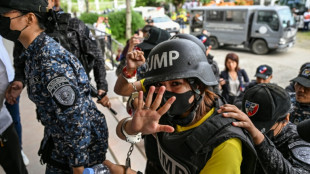
-
 Greenlanders doubtful over Trump resolution
Greenlanders doubtful over Trump resolution
-
Real Madrid top football rich list as Liverpool surge

-
 'One Battle After Another,' 'Sinners' tipped to top Oscar noms
'One Battle After Another,' 'Sinners' tipped to top Oscar noms
-
Higher heating costs add to US affordability crunch
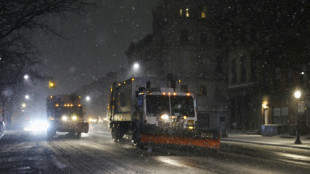
-
 Eight stadiums to host 2027 Rugby World Cup matches in Australia
Eight stadiums to host 2027 Rugby World Cup matches in Australia
-
Plastics everywhere, and the myth that made it possible
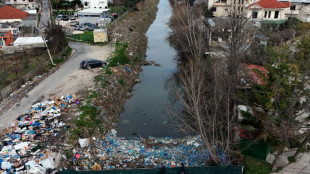
-
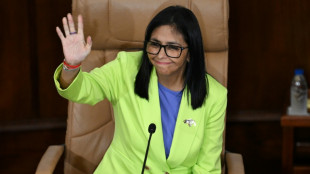 Interim Venezuela leader to visit US
Interim Venezuela leader to visit US
-
Australia holds day of mourning for Bondi Beach shooting victims

-
 Liverpool cruise as Bayern reach Champions League last 16
Liverpool cruise as Bayern reach Champions League last 16
-
Fermin Lopez brace leads Barca to win at Slavia Prague

-
 Newcastle pounce on PSV errors to boost Champions League last-16 bid
Newcastle pounce on PSV errors to boost Champions League last-16 bid
-
Fermin Lopez brace hands Barca win at Slavia Prague

-
 Kane double fires Bayern into Champions League last 16
Kane double fires Bayern into Champions League last 16
-
Newcastle pounce on PSV errors to close in on Champions League last 16

-
 In Davos speech, Trump repeatedly refers to Greenland as 'Iceland'
In Davos speech, Trump repeatedly refers to Greenland as 'Iceland'
-
Liverpool see off Marseille to close on Champions League last 16

-
 Caicedo strikes late as Chelsea end Pafos resistance
Caicedo strikes late as Chelsea end Pafos resistance
-
US Republicans begin push to hold Clintons in contempt over Epstein
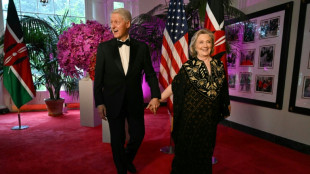
-
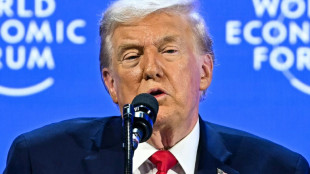 Trump says agreed 'framework' for US deal over Greenland
Trump says agreed 'framework' for US deal over Greenland
-
Algeria's Zidane and Belghali banned over Nigeria AFCON scuffle

-
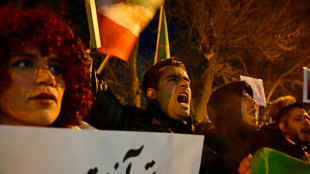 Iran says 3,117 killed during protests, activists fear 'far higher' toll
Iran says 3,117 killed during protests, activists fear 'far higher' toll
-
Atletico frustrated in Champions League draw at Galatasaray

-
 Israel says struck Syria-Lebanon border crossings used by Hezbollah
Israel says struck Syria-Lebanon border crossings used by Hezbollah
-
Snapchat settles to avoid social media addiction trial
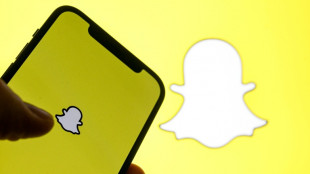
-
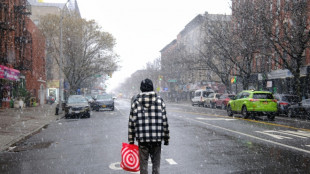 'Extreme cold': Winter storm forecast to slam huge expanse of US
'Extreme cold': Winter storm forecast to slam huge expanse of US
-
Jonathan Anderson reimagines aristocrats in second Dior Homme collection

-
 Former England rugby captain George to retire in 2027
Former England rugby captain George to retire in 2027
-
Israel launches wave of fresh strikes on Lebanon

-
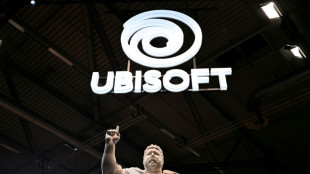 Ubisoft unveils details of big restructuring bet
Ubisoft unveils details of big restructuring bet
-
Abhishek fireworks help India beat New Zealand in T20 opener
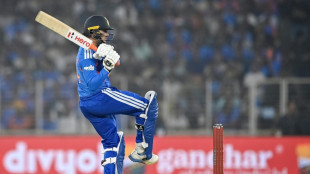
-
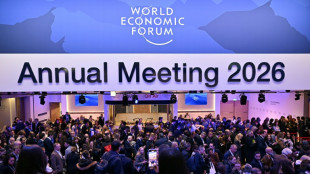 Huge lines, laughs and gasps as Trump lectures Davos elite
Huge lines, laughs and gasps as Trump lectures Davos elite
-
Trump rules out 'force' against Greenland but demands talks
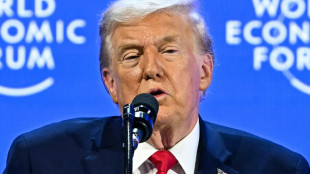
-
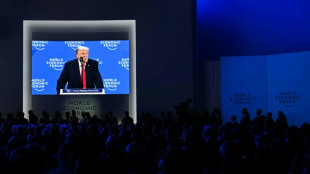 Stocks steadier as Trump rules out force to take Greenland
Stocks steadier as Trump rules out force to take Greenland
-
World's oldest cave art discovered in Indonesia

-
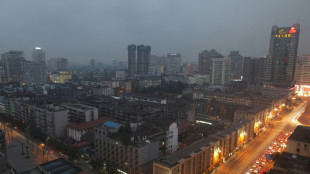 US hip-hop label Def Jam launches China division in Chengdu
US hip-hop label Def Jam launches China division in Chengdu
-
Dispersed Winter Olympics sites 'have added complexity': Coventry

-
 Man City players to refund fans after Bodo/Glimt debacle
Man City players to refund fans after Bodo/Glimt debacle
-
France's Lactalis recalls baby formula over toxin
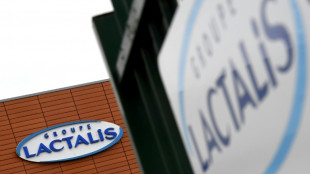
-
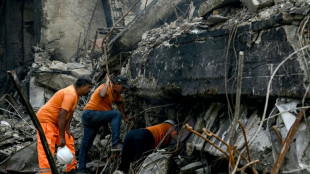 Pakistan rescuers scour blaze site for dozens missing
Pakistan rescuers scour blaze site for dozens missing
-
Keenan return to Irish squad boosts Farrell ahead of 6 Nations

-
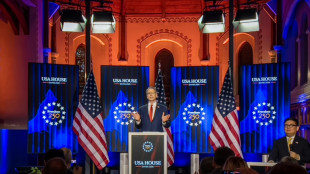 US Treasury chief accuses Fed chair of 'politicising' central bank
US Treasury chief accuses Fed chair of 'politicising' central bank
-
Trump rules out force against Greenland but demands 'immediate' talks
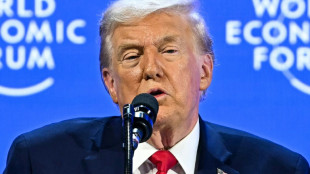

In vaccination champ Brazil, many have stopped getting shots
Two years after Brazil began emerging from its pandemic horror show thanks to a massive immunization campaign, officials face a paradoxical predicament: vaccination rates have plunged, and not just for Covid-19.
The troubling trend has left millions exposed to once-eradicated diseases.
Doctors, public officials and UNICEF have sounded the alarm over collapsing immunization rates in Brazil, where overall vaccination coverage has fallen from an impressive 95 percent in 2015 to just 68 percent last year, according to official figures.
For polio, the figure fell from 85 percent to 68 percent, triggering warnings that the disease could make a comeback in Brazil, where it was eradicated in 1989.
The figures are similar for other vaccines, allowing diseases to spread. Measles, officially eliminated in Brazil in 2016, returned two years later. There are fears diphtheria is making a resurgence, too.
Health experts say vaccine hesitancy is a growing problem worldwide. But it is particularly worrying in Brazil, a sprawling country of 203 million people that until recently was hailed as a champion of mass vaccination drives.
Then an anti-vax movement started spreading around 2016, soon gaining outsize influence via a powerful ally: far-right leader Jair Bolsonaro, president from 2019 to 2022, who refused to be vaccinated against Covid-19, joking the jab could "turn you into an alligator."
"It's very sad to see how a country whose vaccination programs set an example for the world can suddenly suffer from an anti-vaccine movement," Natalia Pasternak, head of the Question of Science Institute (IQC), a public policy think tank, told AFP.
"It's very sad to see how 50 years of work can be so easily destroyed in three."
- Success story undone -
Covid-19 highlighted the shots-in-arms capacities of Brazil's struggling but lauded universal public health system.
Back in 2020, some of the most haunting images of the pandemic were of mass graves and corpses piled in refrigerator trucks in places such as Manaus, in northern Brazil, whose overwhelmed hospitals ran out of oxygen.
Then new images started emerging in 2021, of public health workers turning Rio de Janeiro's carnival parade venue into a drive-through immunization center, or boating deep into the Amazon rainforest to administer vaccines in Indigenous villages.
Experts credit the campaign's success with stopping a far bigger tragedy in Brazil, where more than 700,000 people have died of Covid-19, second only to the United States.
Despite a slow start -- widely blamed on Bolsonaro -- Brazil had by early last year vaccinated 93 percent of adults against Covid-19.
Then rates fell, not only for Covid-19 vaccines but across the board.
- The 'infodemic' -
Many factors are driving the decline, experts say.
They include failure to catch up on vaccines delayed during the pandemic, inaccessible health care and declining awareness of the dangers of once-ubiquitous diseases.
But experts say a new element is making things much worse: the toxic mix of politics, polarization and disinformation that exploded during the pandemic and is increasingly familiar worldwide.
In Brazil, despite Bolsonaro losing a divisive 2022 election to veteran leftist Luiz Inacio Lula da Silva, the anti-vax movement still thrives.
"We're facing a post-trust scenario, in which families are being attacked by disinformation and lies. It's not just the occasional fake news story, it's very structured," said Isabella Ballalai of the Brazilian Immunization Society.
"The consequences of that 'infodemic' will be worse than the pandemic itself."
Brazilian Health Minister Nisia Trindade says the government is evaluating how to punish doctors spreading anti-vax disinformation.
"Criminal fake news is sowing doubt and fueling vaccine hesitancy," she told AFP.
- Going local -
A recent survey by the Brazilian Pediatrics Society (SBP) and IQC found that doctors said parents' most common reasons for not vaccinating their children were fears of side effects and mistrust of vaccines.
Experts say health workers are desperate for reliable information to counter the flood of anti-vax disinformation.
Pasternak, whose organization is working on creating just that, says health officials also need to think locally.
"Studies show the best way to convince people to get vaccinated is working with local leaders... People listen to those they trust: pastors, community leaders," she said.
But reversing the trend will not be easy, Pasternak admitted.
"We have lots of work to do."
I.Meyer--BTB




